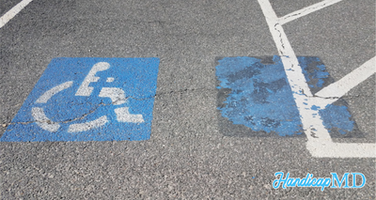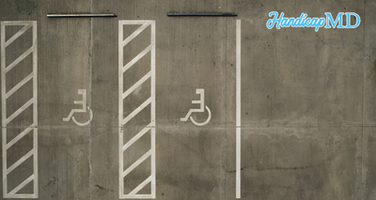
Myths vs. Facts: Debunking Common Misconceptions about Handicap Placards in Georgia
Handicap passes serve a crucial role in ensuring accessibility for individuals with disabilities. These passes, issued by the state of Georgia, allow people with disabilities to park in designated parking spaces, providing them with convenient access to businesses, public facilities, and services. However, there are many misconceptions and myths surrounding handicap placards in Georgia. In this article, we aim to debunk these misconceptions with verifiable facts and provide answers to frequently asked questions.
Myth 1: Handicap placards are only for individuals who use wheelchairs.
Fact: Handicap passes in Georgia are not limited to individuals who use wheelchairs. They are designed to assist anyone with a qualifying disability that affects their mobility. This includes individuals with mobility impairments who may use walkers, canes, crutches, or have other medical conditions that make walking difficult.
Myth 2: You can use someone else's handicap placard if they give you permission.
Fact: Handicap permits are issued to specific individuals and are not transferable. It is illegal to use someone else's placard, even with their permission. Violating this rule can result in fines and the revocation of the placard.
Myth 3: Handicap placards are free for anyone with a disability.
Fact: While some states may offer free passes, GA charges a fee for both temporary and permanent handicap passes. The fees vary depending on the type and duration of the pass. It's important to check the Georgia Department of Revenue website for the most up-to-date fee information.
Myth 4: You can park in a designated parking space without a placard as long as you have a disabled license plate.
Fact: In GA, parking in a designated space without a valid disability pass or license plate is illegal. To use a designated parking space legally, you must display a disability pass or have a vehicle with a disability license plate issued in your name.
Myth 5: Handicap placards are issued solely for physical disabilities.
Fact: Placards are not limited to physical disabilities. They can also be issued for certain medical conditions that affect mobility, such as heart conditions, lung diseases, and severe arthritis. Eligibility depends on how the condition impacts your ability to walk.
Myth 6: Once you have a handicap placard, it's valid for life.
Fact: Handicap passes in Georgia have expiration dates. Temporary passes are valid for up to six months, while permanent passes are typically valid for four years. It's essential to renew your pass before it expires to ensure continuous access to designated parking spaces.
Frequently Asked Questions (FAQs):
Q1: Who is eligible for a disability permit in GA?
A: Individuals who have a qualifying disability, including those with mobility impairments, medical conditions, or visual impairments that affect their ability to walk, may be eligible for a disability pass. Eligibility criteria are outlined on the GA Department of Revenue website.
Q2: How do I apply for a disability permit in GA?
A: To apply for a handicap placard in Georgia, you need to complete the Disabled Person's Parking Affidavit (Form MV-9D) available on the GA Department of Revenue website. The form must be signed by a licensed healthcare provider.
Q3: What is the difference between a temporary and a permanent disability permit?
A: Temporary passes are issued for temporary disabilities and are typically valid for up to six months. Permanent passes are issued for individuals with long-term disabilities and are valid for four years.
Q4: Can I renew my disability permit online?
A: Yes, you can renew your permit online through the GA Department of Revenue's online services portal. Make sure to renew it before it expires to avoid any disruptions in your access to designated parking spaces.
Q5: What are the penalties for misusing a disability permit in GA?
A: Misusing a pass in GA can result in fines and the placard's revocation. The penalties for misuse can be significant, including fines and potential legal consequences.
Q6: Can out-of-state disability permits be used in GA?
A: GA generally recognizes out-of-state passes. However, it's essential to follow GA's parking regulations and display the out-of-state permit appropriately when parking in designated spaces within the state.
Q7: How do I replace a lost or stolen disability permit?
A: If your disability permit is lost or stolen, you can obtain a replacement by completing a Lost or Stolen Disabled Person's Parking Affidavit (Form MV-9D) and submitting it to the GA Department of Revenue. There may be a replacement fee.
Q8: Can I lend my handicap permit to a family member with a disability?
A: Disability permits are issued to individuals and are not intended for shared use. Lending your permit to a family member is considered misuse and can result in penalties.
In conclusion, understanding the facts and dispelling myths about handicap placards in Georgia is essential to ensure that individuals with disabilities have equitable access to parking spaces and the services they need. If you or a loved one has a qualifying disability, it's crucial to follow the proper procedures to obtain and use a handicap placard in accordance with Georgia's regulations. By doing so, you can help make the state a more accessible place for everyone.
.png)






